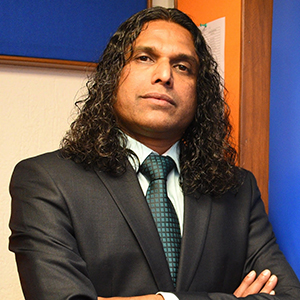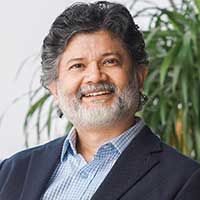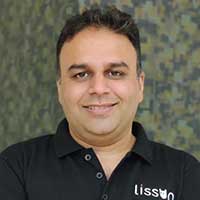The budget of 2022 – 2023 is being keenly watched by all. Industries limping back to normalcy and hoping this budget will boost their sectors. The tax-paying individual is also hoping for relief.

Ashit Kukian, CEO, Radio City: “We would like Union Budget 2022 to rationalize the GST component to 5% across the media industry. As one is aware, almost all revenue for the radio and media industry comes in through advertisers, whose margins were considerably hit by the pandemic and while we acknowledge the government’s swift rollout of vaccinations in budget 2021, we expect a swift revival in turn aiding a quick recovery of the media sector. As the government focuses on providing relief measures across industries, it calls out for carving a futuristic roadmap for digitization. In the upcoming budget, we expect an allocation of substantial funds in advertising for the radio and media industry.”

Nandini Mansinghka, Co-founder & CEO, Mumbai Angels Network: “In the last few years, the government has launched multiple policies and schemes for the welfare and growth of the start-up community. With young entrepreneurs entering this ecosystem at a steady pace, we hope that resources, funds, and capital provided by the government are easy to access. We further expect from the government to create an easy regulatory system, policies, and norms for start-ups so that organizations can run a business without any administrative obstacles”.

Rishabh Khanna, Cognitive Scientist and Co-founder of Suraasa, “The world has seen a change in the way we live. Education specifically has taken a new direction that has made technology-based learning, whether online or blended, indispensable for our education systems. Over 1 crore teachers of the country have pushed themselves to embed technology in their teaching systems and they need support in developing their capability on new-age teaching methods. I think that we should allocate a part of this education budget specifically to solve this need. After all, teachers are leaders in a classroom and our students can learn effectively only if teachers are able to interact with them on the same wavelength.
The education budget this year could define the way forward for us as a country and for the entire education system. Looking forward to the union budget.”

Bharat Malu, Director, Chymey: There are a lot of expectations from the 2022 budget. Start-ups have been hailed by the govt of India as one of the key segments that will aid the progress of the Indian economy and take it to the next era. To aid this vision we need a higher allocation of funds for seed funding by investors and incubators. Tax holidays for start-up companies with under 20 cr revenue will encourage more entrepreneurs to take the plunge. A lot of the startups are now tech-driven or tech-enabled. If we are to host the next big tech revolution and /or create the next amazon from India then a deeper look is required at forming more Technology Parks.

Sushant Gupta, Founder & CEO of SG Analytics: In order to make startups an equally lucrative opportunity for job seekers, we suggest the government revisit the definition of start-ups and ESOP Taxation. It might be more relevant if ESOPs are taxed only during the time of sale. In addition to this, except for SEZ long-term capital gains would boost the stock market, and encourage foreign investments inflow in the country.

Sarvagya Mishra, Co-founder & Director, SuperBot (PinnacleWorks): “India is still a developing economy, which needs technological advancements in a lot of sectors. Even if we talk about the advancements in the fields of agriculture, medicine, education, etc. technology is that one thing that is the common element required for the advancement of all. But, we have a long way to cover in terms of technological advancements as well as compared to other countries, esp for making India a developed nation from a developing one. The budget which a country allocates should have a fair share towards technological advancements, as then only we will be able to digitize and automate the other industries. From home automation, to advance agriculture tools, to medical equipment required for transplantation and major surgeries to save lives, all need technology. Therefore we hope that technology and start-ups working on these technologies should get support from the government to come up with new ideas, solutions to make India an advanced economy. ‘

Krishna Veer Singh Co-Founder and CEO, Lissun: “Fair and impartial digital focus on healthcare is need of the hour. We hope the government allocates more funds to health tech, enabling even the rural population to fall under its ambit. Owing to India’s young population, SaaS is maturing, and health-tech would help stabilize the shortage of medical manpower in the country. More budget in health-tech would also make it a lucrative space for investments and start-ups, in turn helping the government to achieve its aim of 1:1000 doctor/patient ratio by 2024, which is a WHO-recommended norm. Besides, the pandemic has taught us that creating home care health infrastructure is an absolute necessity. Investment in health tech can bridge this long and short-term industry gap. Moreover, we have seen mental health cases rise in the past year. However, insurers in India seldom offer policies that cover non-hospitalization treatments or OPD reimbursements. This means that unless mentally ailing patients get hospitalized, they won’t be eligible for coverage. Insurance covers, thus, naturally exclude therapy and psychiatric counseling coverages. IRDA should push for OPD reimbursements for psychology therapy and counseling”.

Preet Pal Thakur, Co-founder GlamyoHealth: “Healthcare, for obvious reasons, is likely to be the sector of focus in this financial budget. As a Health tech start-up focused on elective surgeries, I personally would wish that the GST on Health insurance premiums be removed – a step that will accelerate the insurance penetration in masses and remove inequity in healthcare access. Specifically for the start-up ecosystem, I would request the honorable finance minister to tax the ESOPs only at the exercise. There is still some ambiguity. It will help start-ups like Glamyo Health to hire and retain good quality talent as we scale this year to 40 plus cities in India.”

Priyank Shah, Co-Founder & Director, RENEE Cosmetics: “In 2021 Indian startup community witnessed that more women have started their entrepreneurship journey and the entire industry has been cheering them on. However, specific reforms that encourage women-led start-ups are still missing. We hope to see some relief in taxation and GST policies so that women entrepreneurs can be encouraged to take the leap with a little more convenience. We can expect the government to encourage and provide funds to enable academic incubation centers in women-only colleges, which will enable more young women to not only explore entrepreneurship but also create startups as well. Support of working capital and interest-free loans would also be highly beneficial to encourage Women-led startups. In addition to this, COVID-19 has been challenging for the entire industry in terms of production, therefore we seek easy and low-interest loans to cover the manufacturing part and provide the audience with better products. In this budget, the government should provide financial assistance to growth-oriented start-ups with proven capabilities to enhance their R&D.”
Sujata Pawar- CO-Founder & CEO, Avni- traditional menstrual care brand, “A lot of startups have entered the space of eco-friendly products. This is not just a leap to alter lifestyle, but also a contribution towards the environment. The government should come up with subsidies on eco-friendly products in all categories, and also encourage entrepreneurs to work towards organic replacements of various products. Lenient taxation could be looked at to promote the adoption of organic products by the end consumers too.”
Rajesh Uttamchandani, Director – Syska: “The pandemic has resulted in a tremendous learning loss for students across the country. As children return back to school in phases, it is essential that the Government sets up programs to bridge this learning gap. One step in this process would be a robust program to train teachers on how they can work with students to bring them at par with the expected learning levels of their grade. In order to facilitate this, the Government must allow partnerships between private players to be a part of educational governing bodies to ensure a greater reach for upskilling programs in the government sector for teachers. Partnerships will ensure that all teachers across the country are trained before the next academic year begins and each school can plan a few weeks of a bridging course at the beginning of the year. Along with this, a reduction in the GST slab for teacher training will help make this training accessible to all teachers. We hope that the educational reforms in Budget 2022 will result in more effective reach and aid in achieving the goals of an inclusive and Atmanirbhar education system.”
Kishan Jain, Director – Gold medal Electricals: “The Union Budget in India is always eagerly awaited by everyone, from corporates to taxpayers, with all hopes attached to having simplified compliances. In the wake of the third Covid wave, there is a certain expectation in terms of rebates and relief from the Finance Ministry on Indirect and Direct taxes. Stimulus packages and tax exemption policies designed for the COVID impacted era would help revitalize the economy. Moreover, the duration of the compensation cess ends in June 2022, hence it would be great if the government could look at providing an extension on this by six months or a year. The Ministry of Finance may have some surprises in their bags for the GST regime specifically from a sectoral perspective, hence as a leading industry player, we are looking forward to this. In order to provide a fillip to business growth, the government is also expected to introduce financial aid to build a strong digital infrastructure for MSMEs and startups. This will help further strengthen organizations, enabling them to grow and thrive in today’s remote work environment.”
Niraj Hutheesing-Founder and Managing Director, Cygnet Infotech: “India saw a euphoric rise in the number of unicorns in 2021, adding 33 in a year making it one of the fastest-growing technology startup ecosystems globally. This growth has been on the back of overall improvement in ease of doing business, and this should continue to remain an ongoing focus and priority. Within the logistics space, there has been a massive disruption led by a major increase in last-mile deliveries. Additionally, as Make-in-India along with the national freight corridors gains momentum, this is going to further increase demand for logistics. All of this necessitates building infrastructure capabilities that are future-ready. We can achieve this with the right focus on digitizing processes and making international trade easier, which would go a long way in elevating India’s position in the global technology and logistics arena.”
Vijay Kumar Mikkilineni, Head of Marketing, TCL India: “Reduction on import tariff is something we are expecting, this will help us compete with countries like China, Mexico, Thailand and more. In the last two years, the PLI schemes have provided momentum to domestic and international investments, but so the investment from the Government side for infrastructure building will boost the ‘Make in India’ movement. We have to integrate India into the global supply chain scenario, to achieve that tariffs should be equal or less than competitive markets.”
Rimo Bose, PR, and Branding Manager, TCL India: “We are expecting that the import tariff will be reduced, so that our country can match up with the other competing countries like China, Mexico, Thailand and more. Additionally, we have witnessed much of compliance reforms in the last two years, the PLI schemes have indeed helped in domestic and international investments, but we have to keep in mind that setting up manufacturing units might take several years, so the investment from the Government side will boost the ‘Make in India’ movement.”
Hamish Patel, Chief Product Officer, World of Play: “On the supply side, a much-needed relief would be to waive customs duty on the import of electronic components. This will provide a boost to a growing electronics manufacturing sector and relieve stress that has built up over the last 18 months. It is important that we see a reduction in GST rates, given the component shortages we have seen the price of electronics skyrocketing. Lowering GST will make products affordable and give a boost to the electronics industry. A progressive take by the government would be to see the government providing incentives to companies with spends on research and development.”
Aakrit Vaish, Co-Founder & CEO, Haptik: “Due to the increased push toward digitalization, the usage of AI across industries has increased remarkably. While the previous two budgets had recognized the importance of technology in shaping the new India, we now anticipate opportunities and significant government efforts to locate India as one of the world’s preferred AI attractions this year. Considering this, we hope this time too the Finance Minister will put special emphasis on AI and technology for future-ready solutions. We at Haptik.ai are optimistic about the center’s vision for a digital strong Bharat and are looking forward to favorable measures that will boost the tech ecosystem in India.”
Jesal Doshi, Deputy CEO, B Medical Systems: “One of the expectations is for increased allocation in the healthcare sector – across the entire infrastructure, specifically for immunization. COVID-19 is far from over and it is vital that the country is well prepared to fight the pandemic and any future pandemics, and a reliable medical cold chain is critical for the success of any immunization program. We believe that creating a sub-industry for medical cold chains and separating it from commercial refrigeration, along with reduced GST rates could further boost the sector. The government should reduce import duties on critical components that are essential for manufacturing reliable medical cold chain units. This, along with production-linked incentives will help improve the country’s ability to access world-class medical cold chain products and also improve India’s export competitiveness in this industry.”
Sumit Saxena – CEO, Merren: 2021 has been a breakout year in the Indian startup journey with sectors like SaaS, FinTech witnessing exponential growth. Increasingly, we are seeing Indian startups building products for the world. As we look forward to this year’s Union Budget, we hope it focuses on strengthening the startup infrastructure. New reforms in tax structures, assistance for obtaining fundings and policies that promote built-for-the-world businesses would give startups the much-required fillip

















